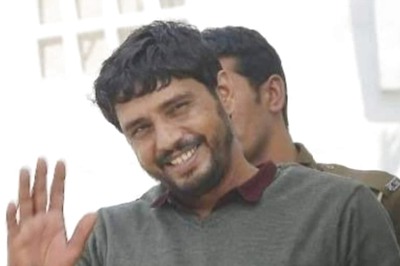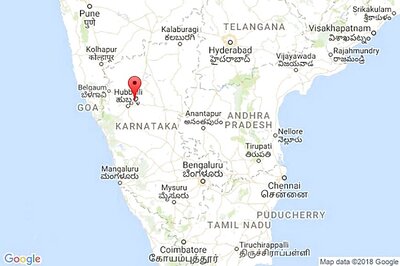
views
London: In a dramatic shift, British Olympic officials doubled the funding on Monday to protect venues at the 2012 London Games, raising overall security costs to more than 1 billion pounds ($1.6 billion).
Olympics minister Hugh Robertson insisted that the London Games remained financially on track - and within contingency planning. But the new figures are certain to become a sensitive issue in Britain, as tough economic times and bleak forecasts for the future raise questions about the wisdom of hosting the Olympics.
"We're confident we can do this and remain on budget," Robertson told reporters at a news conference.
Robertson made clear that security was not a negotiable item and that the British government was obligated to make sure it took every precaution to make the July 27 to August 12 event safe.
The increase comes after security reviews that suggested the initial estimate of 10,000 security guards contracted for the games would not be enough. Thousands of soldiers are now part of the planning, though officials have declined to reveal the exact number.
The government said an additional 271 million pounds ($424 million) has been allocated to making venues and other sensitive sites, such as hotels, more secure. That means the total cost of securing the venues has climbed to over 553 million pounds ($862 million).
But the rise announced on Monday only deals with security guards and other measures needed to protect the venues and related sites. That money is in addition to the cost of paying police and others services to provide overall security for the games. Although Britain's Home Office initially budgeted 600 million pounds ($940 million) for that, that number has been trimmed to 475 million pounds ($745 million).
Authorities say they could only come up with a figure after complex arrangements to actually stage the games were in place. Robertson said an evolving security picture also played a role, suggesting that planners could not have known about the Arab Spring, for example, when first making their plans. He insisted that the British riots last summer, however, did not play a role in the funding increase.
Margaret Gilmore, a security expert at the Royal United Services Institute, said the contingency was in place to cover security cost increases.
"Given the current security climate, it is no surprise the government has decided to use these funds after all," she said in an email. "Every possible risk to the games needs to be dealt with and it is reassuring that the money will go on further security at venues and other sensitive sites."
The biggest security worry for the Olympics is terrorism. Security has been an intricate part of the games since a terror attack at the 1972 Olympics in Munich killed 11 Israeli athletes and coaches. London has not been immune from terror attacks - four suicide bombers targeted the city's transit network in 2005, killing 52 commuters.
The British government is planning for the national terror threat to be "severe" during the Olympics, meaning an attempted attack is highly likely. About 12,000 police officers will also be on duty on the busiest days of the games.
Another increase likely to spark discussion was an additional 41 million pounds ($63.9 million) devoted to the Olympic ceremonies. Robertson defended the increase, saying that a proper spectacle was needed to make sure Britain and its tourism industry benefit. Billions of people around the globe are expected to watch the televised opening ceremonies.
"We're just never going to get another moment like this," Robertson said.
The release of the figures comes a day before government auditors unveil what is expected to be a critical report on the costs of the 2012 games. Britain's total costs for the event remains at 9.3 billion pounds ($14.5 billion).


















Comments
0 comment